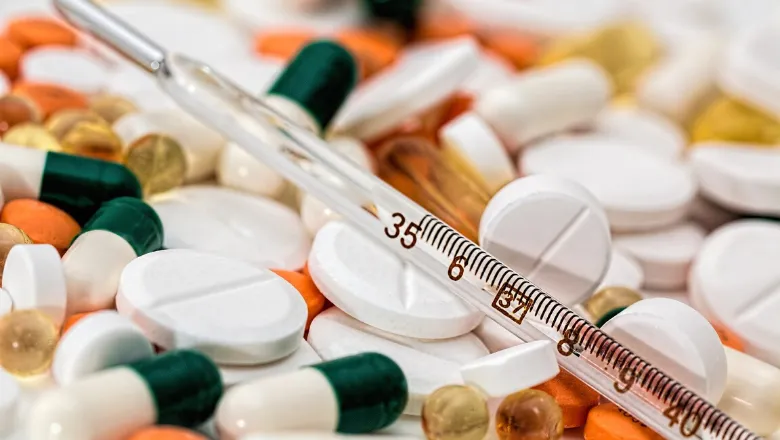I believe the role of young people and both undergraduate and postgraduate students in achieving global health progress is still very much undervalued. Our students are incredibly keen to educate their peers as well as the general public about the issue of counterfeit medicines. Through our various global partner universities, we are hoping to spread the word as far as possible.
founder of the FTF chapter at the university Dr Bahijja Raimi-Abraham, Lecturer in Pharmaceutics, School of Cancer and Pharmaceutical Sciences
06 April 2020
King's joins forces with Fight the Fakes to speak out against substandard and falsified medicines
King’s has joined the Fight the Fakes (FTF) campaign to raise awareness against the dangers of substandard and falsified medicines.

With the world currently grappling to treat and contain the novel coronavirus (COVID-19) and emerging reports of falsified COVID-19 treatments, vaccines or even cures, King’s, and new partners the Medical University of Warsaw and the Polish association ‘Stop Illegal Pharmaceuticals’, are joining at a time in which every voice against fake medicine counts more than ever.
Originally set up in 2013 by 10 organizations, FTF now counts 40 partner organizations, representing health care professionals, patients, civil society, manufacturers, wholesalers and industry. The three new partners bring great additional expertise to FTF’s existing membership and are committed to achieving greater recognition of the threat falsified and substandard medicines pose to patient safety and the goal of attaining universal health coverage (UHC).
The King’s College London Fight the Fakes chapter will represent a multidisciplinary undergraduate and postgraduate student-led campaign with a focus on falsified antimalarials and antibiotics, two of the most reported counterfeit drugs.
Fight the Fakes is particularly delighted to strengthen its youth membership base by welcoming two new academic chapters to the campaign. Oksana Pyzik, founder of the FTF chapter at University College London (UCL) – once the first and only academic campaign member– says: “Having King’s College London and the Medical University of Warsaw joining FTF shows the increasing awareness among academics and students of the prevalence and dangers of counterfeit medicines to global public health. Harnessing the power of young people’s enthusiasm and engagement will be incredibly valuable for the FTF’s awareness raising efforts.”
At the Medical University of Warsaw, a dedicated student-led research group “Pharmacy & Law – Fight the Fakes” is being set up within the Department of Forensic Pharmacy. The group aims to educate students, medical staff and the public about the issue of substandard and falsified medicines while working closely with ‘Stop Illegal Pharmaceuticals’, a Polish association composed of pharmacists, doctors, students, former police officers and lawyers.
Since its launch, FTF has been growing, not only in terms of partners, but also as a recognized global voice aiming to anchor the vital role of tackling substandard and falsified medicines within overall approaches to achieve UHC. The campaign is relaunching a call for members that are committed to combatting the production and spread of falsified and substandard medicines, especially in sub-Saharan Africa and SouthEast Asia where people are most vulnerable to unknowingly purchasing and consuming counterfeit medical products.

